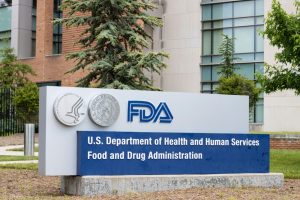Often, this means telling them, after a comprehensive review of information and dialogue, that he can’t help them.
“This is the difficult part of my role”, he shares. “In other cases, I’ve shared I believe the facts of the matter presented suggest the attorneys consider a motion for summary judgement. In complicated cases, I always reserve time and avoid any conflicts of interest when serving as an expert.”
Gary speaks with Lawyer Monthly about foodborne illnesses and cases he serves on.
What are common foodborne illness cases you are asked to serve as an expert on?
During my over four years with the FDA I participated in over 100 foodborne illness outbreaks. These experiences, and previous work regarding E. coli O157:H7, provides me with contemporary, real-world, outbreak experience from detection, through traceback to confirm suspect food vehicles, response and analysis of prevention opportunities for the food industry. As a result of my professional training and experience, I have worked as an expert on two of the largest foodborne illness/product recall events in history. I have served as an expert for numerous cases relating to individual illnesses for both the plaintiff and defence.
What is your approach to determining if you will serve as an expert witness or consultant?
When asked to serve as an expert witness or consultant, I request a dialogue with the attorneys to go over key facets of the case. I do not charge to review and discuss the foodborne illness/recall situation, even though I have spent many hours deciding if I can be of assistance. Frankly, if I believe a firm failed to follow FDA regulations, I will normally decline the case. In these cases, I recommend the attorneys and the firm consider a settlement. I have served on cases where my analysis suggested the attorney's file for summary judgement. I spend a great deal of time analysing all related information to develop my expert report and prepare for depositions or testimony at trial.
What do you see as the greatest challenge facing attorneys seeking an expert witness or consultant?
Attorneys face challenges finding experts and consultants with contemporary experience dealing with FDA regulations and pathogen detection/confirmation technologies. In the over four years I was with FDA CORE, I participated in the application of advanced whole genome sequence (WGS) data. WGS data is an important tool to determine if a patient’s illness matched others, as well as potential environmental isolates, or actual, implicated product positive samples. These technologies are powerful, but they are not the “silver bullet” as some imply. My experience with these technologies can help rule in or rule out potential patients. I also supervised fulfilling Freedom of Information Act requests, so I know which documents to request, and which to potentially ignore as litigation is considered.
Gary M. Weber, Ph.D.
I am Gary Weber, President of G.M. Weber Consulting, LLC.
My professional experience dealing with foodborne and zoonotic diseases began in 1987 when I served as a National Program Leader for Animal Science with the U.S. Department of Agriculture. In 1994, shortly after the Jack In The Box E. coli O157:H7 outbreak, the cattle industry requested I assist in the development of a science, risk and prevention-based approach to beef safety and regulatory reform. In 2006, I was employed in the private sector working in preharvest technologies to reduce shedding of human pathogens by cattle. In 2013 I accepted an appointment with the Food and Drug Administration (FDA) as the Prevention Manager for the Coordinated Outbreak Response and Evaluation (CORE). I established my food safety consulting practice in 2017.



















